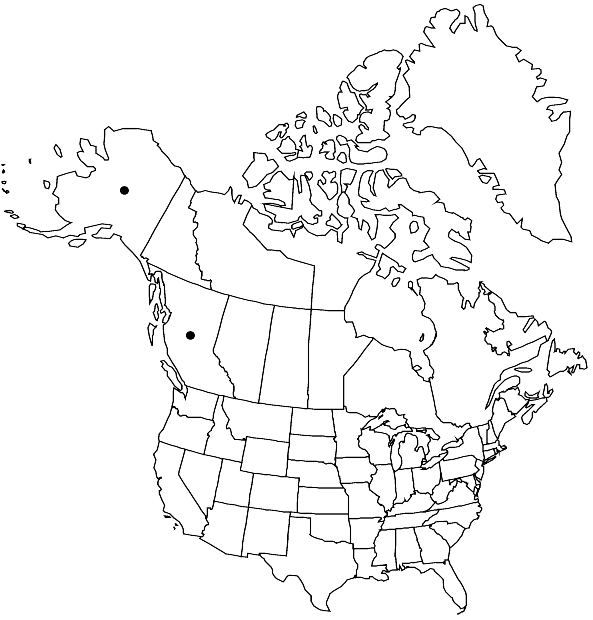Sphagnum wilfii
in N. L. Britton et al., N. Amer. Fl., ser. 2, 11: 90, fig. 57. 1984,.
Plants densely tufted, capitulum ± flattopped; typically red; forms small tufts and hummocks in shaded and open sites. Stems red; superficial cortical cells aporose. Stem-leaves 1.2 mm or more, broadly triangular to triangular-lingulate, 1.2 or more, apex acute, border broad at base (more than 0.25 width); hyaline cells mostly efibrillose, 1–2-septate. Branches uncrowded, 5-ranked. Branch fascicles with 2 spreading and 1 pendent branch. Branch leaves ovatelanceolate, 0.7 mm or more, straight, concave, loosely involute from apex to middle or near base; concave surface with few (2–4) small, rounded, or elliptic pores, especially in cell angles, concave surface aporose or with 1–2 pores at cell ends. Sexual condition unknown. Spores unknown.
Habitat: Blanket mires, especially with Pinus contorta
Elevation: low to moderate elevations
Discussion
The type locality of Sphagnum wilfii in the Queen Charlotte Islands of British Columbia is a site on a pygmy pine slope near the coast. This species has been collected only infrequently but is fairly common in southeastern Alaska. The combination of red pigment, the rather large and triangular to triangular-lingulate stem leaves and the quinquefarious, loosely spreading branch leaves should identify it where it occurs. See also discussion under 68. S. bartlettianum.
Selected References
None.
Lower Taxa
"usually longer and thicker" is not a number."broad" is not a number.
